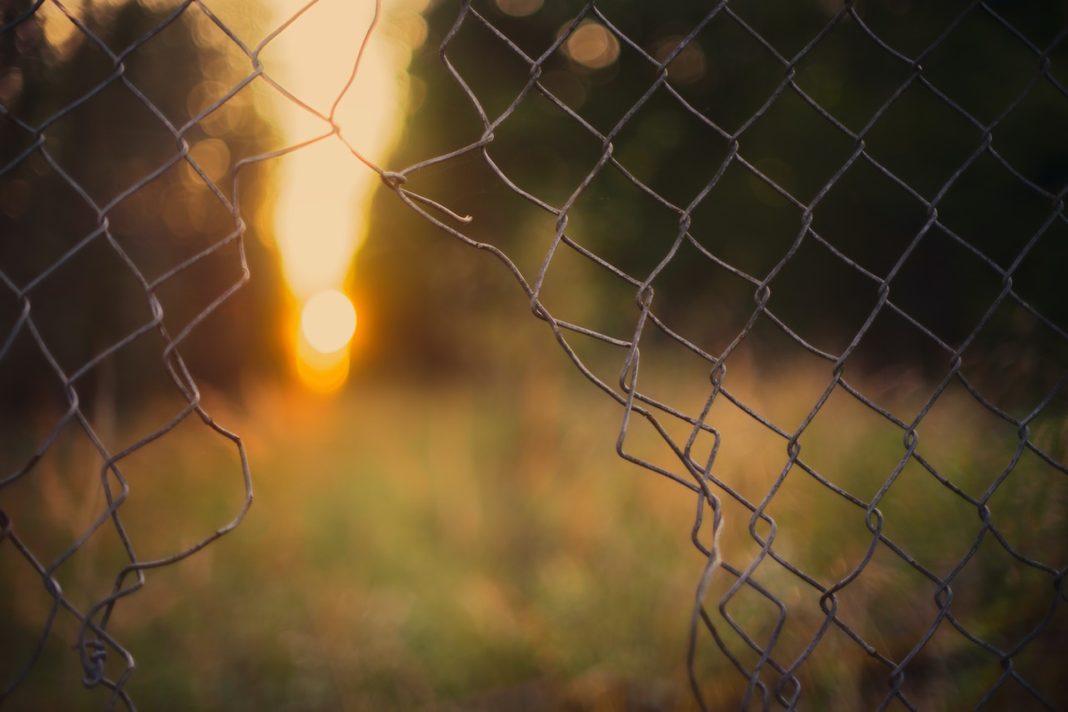He only says, ‘Good fences make good neighbors.’
Spring is the mischief in me, and I wonder
If I could put a notion in his head:
‘Why do they make good neighbors? Isn’t it
Where there are cows? But here there are no cows.
Before I built a wall I’d ask to know
What I was walling in or walling out,
And to whom I was like to give offense.
From “Mending Wall,” by Robert Frost
Positioned along the southern border of France, near the town of Toulon in the late summer of 1944, a United States battalion of soldiers was encamped. From these safe quarters, they would launch out on their missions and then return — hopefully all of them safe and uninjured. Attached to this unit was a sturdy priest who served as the chaplain for all the men no matter what their religion or if they were religious at all. He was a gutsy priest who proved again and again that he would bear any hardship, take any risk that would offer whatever support he could to the troops.
The priest developed great rapport among the men that he served. He became especially close to one of the Jewish soldiers. Their friendship grew over the months. They confided in each other the horrors of war, the longing for family and the troublesome questions of life that war never ceases to engender. The soldier and the priest even made plans of getting their families together after the war was over.
One day a small detachment of the men were sent out on a particularly risky mission. The Jewish soldier was among those selected. As was his practice, the priest gathered with them to pray for their safe return. Several hours later, just as the sun was setting, the unit returned. They had taken heavy causalities. One of those casualties was the Jewish soldier.
The heartbroken priest made an urgent appeal to the Vatican to allow him to bury this fallen Jewish soldier in the local Catholic cemetery. The Vatican quickly denied the priest’s request because it was not permissible to bury a Jewish soldier in a Catholic cemetery. Its position was final and firm.
Years later, decades after the war was over, the surviving soldiers from this unit, including the now old priest, planned a reunion in Toulon. They wanted to reconnect with their buddies and with the place that had forged their friendships and shaped their lives. Once they had all arrived, they started touring some of the old, familiar sites they had learned so well during the war.
One of the places that they happened to visit was the Catholic cemetery where some of their comrades had been buried. As they strolled through the rows and rows of grave markers, noticing the resting place of their fallen friends, they came to a surprising grave on the edge of the cemetery, just inside the boundary fence. It was the marked grave of their Jewish friend. They remembered how the priest had been denied permission to bury the Jewish soldier in the Catholic cemetery, and they wondered how he was now inside the cemetery. They asked the priest if the Catholic officials had changed their minds. The priest said, “No, they hadn’t changed their minds.” “Well, then,” they asked, “how is it that he is now buried inside the cemetery?” The priest turned with a wry smile and said, “They told me that I couldn’t bury a Jewish soldier inside the Catholic cemetery, but they didn’t tell me that I couldn’t move the fence.”
It seems that we are living during times where the prevailing impulse is to build fences, to wall out the people we don’t like, the people we are afraid of, those whom we like to blame for things being the lousy way that they are. We assuage our conscience of any guilt over our fence-construction and wall-building by saying, “Good fences make good neighbors.”
And, so the fences are going up, walling some out and walling in others. Animosities grow between us and “the neighbor” on the other side of the fence, and these animosities escalate into hostilities. We find ourselves living in a badly divided and dangerous world; fences keep “us” safe and “separate” from “them.” Some of these fences are wood and wire, bricks and mortar; others are in our marrow and in our hearts. We know them well.
But, maybe, just maybe, some of us will have the wisdom and courage of that old priest and start moving some fences in our little part of the world to welcome and befriend those whose ethnicity, orientation, religion, status or heritage is different. That young, devout Catholic priest found his dearest friend to be someone from the other side of the fence. Could it be that your dearest friend is waiting for you to move a fence? What a healthier, happier and freer world we would make for ourselves and all those who come behind us if we would start moving some of our old and stubborn fences, opening up new space for new neighbors.










